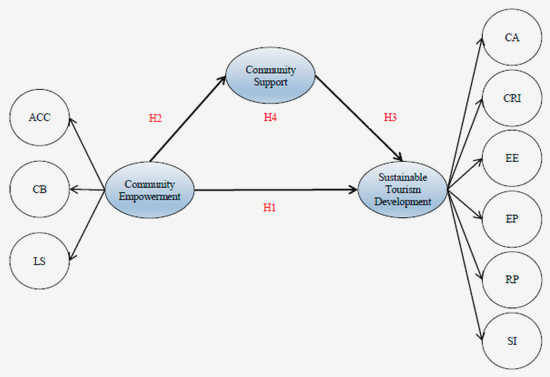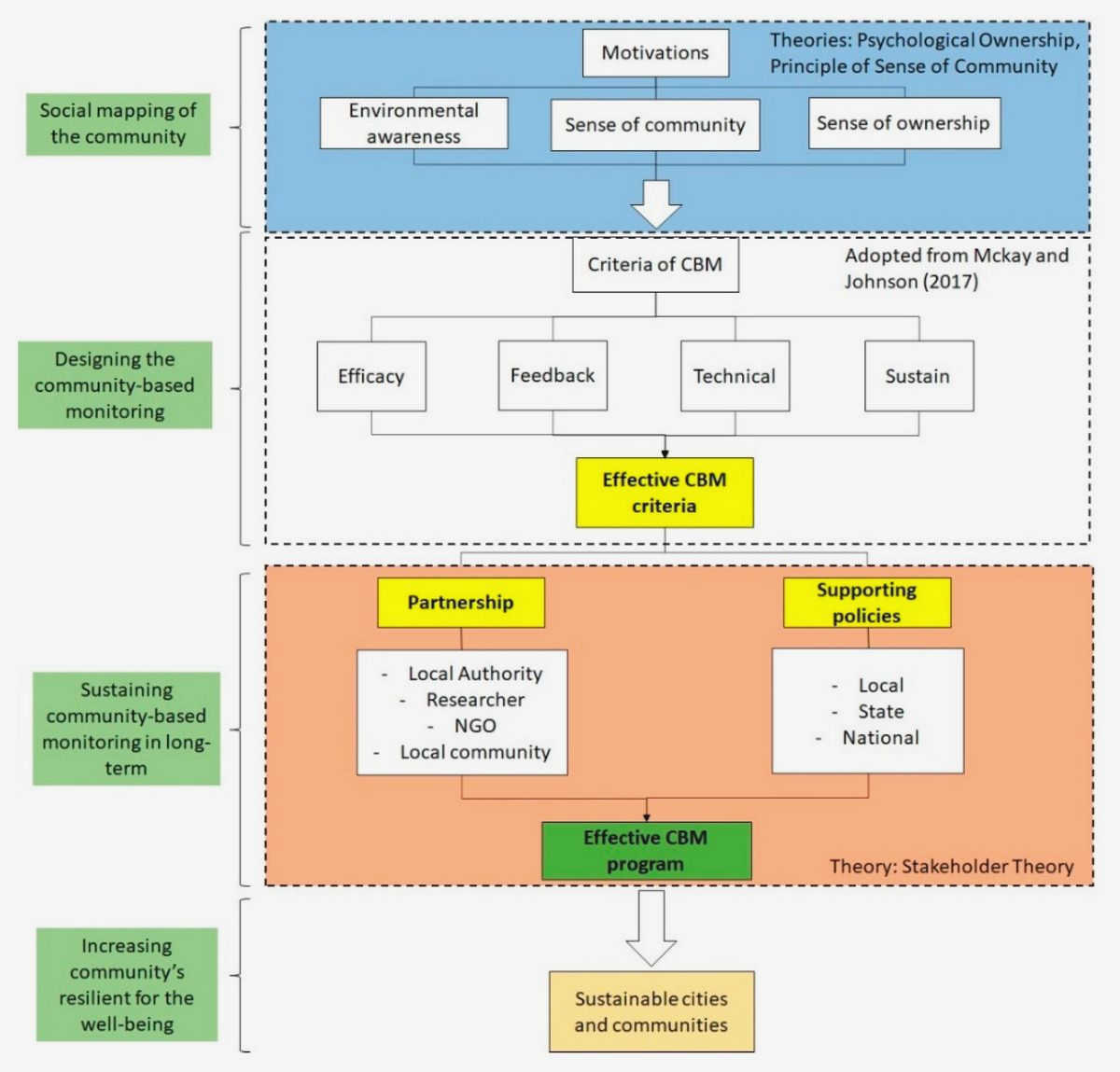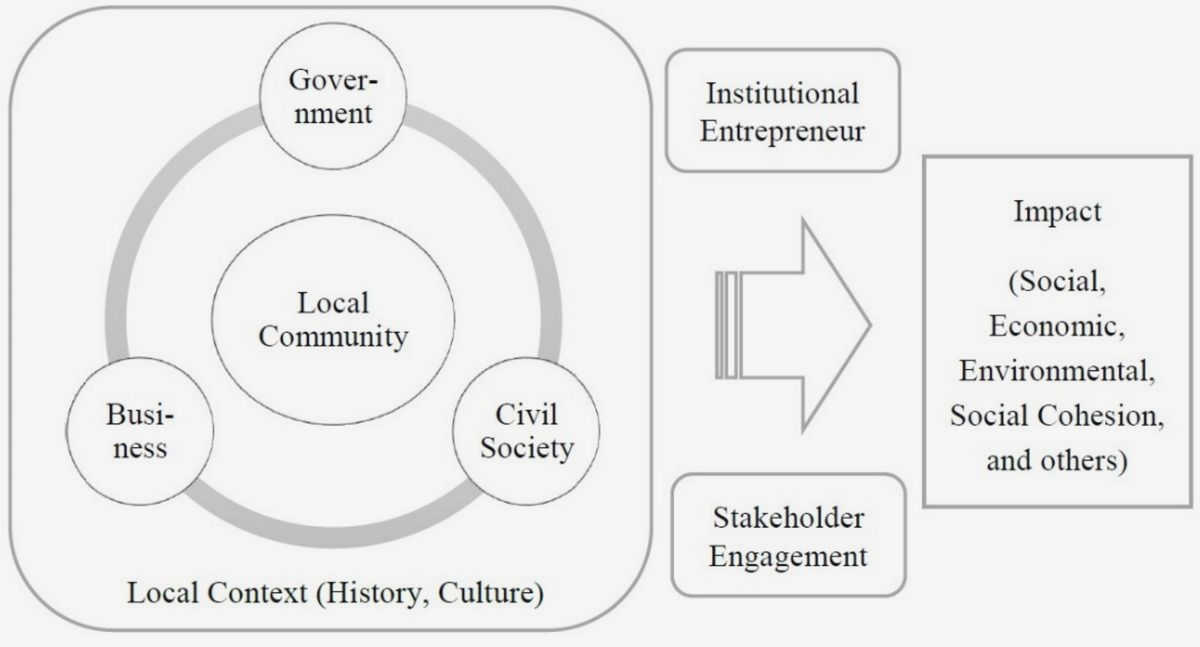As the world grapples with pressing challenges such as poverty, inequality, and environmental degradation, the role of civil society organizations (CSOs) in driving sustainable development has become increasingly important. CSOs, including non-governmental organizations (NGOs), community groups, and grassroots movements, play a vital role in empowering local communities and promoting change at the grassroots level.

One of the key contributions of CSOs is their ability to mobilize and empower communities. These organizations work directly with local communities, giving voice to marginalized groups and empowering individuals to take charge of their own development. Through community-led initiatives and participatory approaches, CSOs foster a sense of ownership and agency among community members, enabling them to actively participate in decision-making processes that affect their lives.
CSOs also play a crucial role in advocating for policy changes and holding governments and businesses accountable for their actions. They serve as watchdogs, monitoring the implementation of policies and projects, and raising awareness about issues that affect local communities. By amplifying the voices of marginalized groups, CSOs ensure that their concerns are heard and addressed, and that decisions are made in the best interest of sustainable development.
Furthermore, CSOs often act as catalysts for social innovation and change. They pilot new approaches, test innovative solutions, and create models for sustainable development that can be replicated and scaled up. By promoting alternative models of development that prioritize social and environmental well-being, CSOs challenge the status quo and offer viable alternatives to traditional development pathways.
In conclusion, civil society organizations play a vital role in driving sustainable development by mobilizing and empowering communities, advocating for policy changes, and catalyzing social innovation. Their work at the grassroots level is crucial in addressing pressing challenges and ensuring that development is inclusive, equitable, and environmentally sustainable.
Promoting Participation and Engagement
Effective civil society organizations play a crucial role in promoting participation and engagement within communities. By creating platforms for dialogue and collaboration, these organizations empower individuals to actively participate in decision-making processes and contribute to sustainable development initiatives.
One approach to promoting participation is through the use of community forums and public consultations. By organizing these events, civil society organizations provide a space for community members to voice their concerns, ideas, and suggestions. This not only ensures that decision-making processes are inclusive and representative but also fosters a sense of ownership and responsibility among community members.
Furthermore, civil society organizations can promote engagement by strengthening the capacity of community members. This can be done through training programs, workshops, and skill-building initiatives. By equipping individuals with the necessary knowledge and skills, these organizations enable them to actively engage in sustainable development activities, such as environmental conservation, social entrepreneurship, and community-led initiatives.
Another important aspect of promoting participation and engagement is the promotion of diversity and inclusivity. Civil society organizations can actively work towards ensuring that marginalized groups, such as women, youth, and minority communities, are given equal opportunities to participate and contribute. This can be done through targeted outreach programs, awareness campaigns, and the implementation of policies that promote diversity and inclusion.
In conclusion, civil society organizations play a pivotal role in promoting participation and engagement within communities. By creating inclusive spaces for dialogue, strengthening community capacity, and promoting diversity, these organizations empower individuals to actively contribute to sustainable development and drive positive change.
Fostering Local Ownership and Accountability
Local ownership and accountability are crucial elements in driving sustainable development and empowering communities. In order to achieve long-lasting impact, it is important for civil society organizations to work closely with local stakeholders, including community members, leaders, and organizations, to ensure that development initiatives reflect the specific needs and priorities of the community.
One way to foster local ownership is by involving community members in the decision-making process. This can be done through participatory approaches, such as community consultations or community-led projects, where community members have an active role in shaping and implementing development initiatives. By involving the community, their knowledge, expertise, and resources can be leveraged, leading to more sustainable and effective solutions.
Furthermore, civil society organizations play a key role in promoting accountability within the community. They can facilitate transparency and ensure that mechanisms are in place to hold both the organization and local authorities accountable for their actions. This can be done through regular reporting, monitoring and evaluation, and the establishment of grievance mechanisms that allow community members to voice their concerns and hold duty bearers accountable.
Empowering local organizations and building their capacity is another important aspect of fostering local ownership and accountability. Civil society organizations can support local organizations by providing training, mentorship, and resources to strengthen their skills and capabilities. This enables them to take a more active role in driving sustainable development within their communities and ensures that initiatives are aligned with their values and priorities.
In conclusion, fostering local ownership and accountability is crucial for driving sustainable development. By involving the community, promoting transparency, and empowering local organizations, civil society organizations can ensure that development initiatives are tailored to the specific needs of the community and that accountability mechanisms are in place to ensure the effectiveness and sustainability of these initiatives.
Advocating for Human Rights and Social Justice
Human rights and social justice are fundamental principles that every society should strive to uphold. Civil society organizations play a crucial role in advocating for these rights and promoting social justice within communities. Through their work, these organizations aim to raise awareness, educate, and mobilize individuals to take action and address issues related to human rights violations and social injustices.
Raising Awareness
Civil society organizations work to raise awareness about human rights violations and social injustices. They use various strategies such as campaigns, workshops, and educational programs to inform individuals about the importance of these issues. By providing factual information, personal stories, and statistics, these organizations help to create a sense of urgency and encourage individuals to take action.
Educating and Mobilizing
Civil society organizations also play a crucial role in educating and mobilizing individuals to address human rights and social justice issues. They conduct trainings, workshops, and seminars to equip individuals with the knowledge and skills needed to advocate for their rights and the rights of others. Through community organizing and grassroots campaigns, these organizations mobilize communities to collectively address issues such as discrimination, inequality, and marginalization.
Holding Governments Accountable
Civil society organizations act as watchdogs, holding governments accountable for their actions or inactions regarding human rights and social justice. They closely monitor government policies and actions, and use advocacy campaigns to pressure governments to fulfill their obligations and commitments to human rights. Through research, lobbying, and public awareness campaigns, these organizations raise public support and put pressure on decision-makers to bring about positive change.

Building Partnerships
Civil society organizations recognize the importance of collaboration and building partnerships to drive sustainable change. They work closely with other organizations, networks, and stakeholders to pool resources, share best practices, and maximize impact. By joining forces and advocating collectively, these organizations can create a unified front and amplify their voices for greater influence and sustainable development.
In conclusion, civil society organizations have a vital role in advocating for human rights and social justice. Through raising awareness, educating and mobilizing individuals, holding governments accountable, and building partnerships, these organizations can drive meaningful change and contribute to the advancement of a more just and equitable society.
Enhancing Access to Education and Healthcare
Education and healthcare are two essential elements for the development and well-being of individuals and communities. Civil society organizations (CSOs) play a crucial role in enhancing access to these services, especially for marginalized and disadvantaged groups.
Education
CSOs are actively involved in promoting inclusive and equitable education opportunities. They advocate for policies and programs that ensure access to quality education for all, irrespective of their socioeconomic background or geographical location.
Empowering communities through education: CSOs work on improving the accessibility of schools, especially in remote areas, by establishing community-based schools, providing scholarships, and advocating for the rights of children to receive education.
Fostering literacy and skills development: CSOs run programs that focus on improving literacy rates and developing essential skills among children and adults. These programs include adult literacy classes, vocational training, and digital literacy initiatives.
Healthcare
CSOs also play a significant role in enhancing access to healthcare services, particularly in underserved communities. They work towards improving healthcare infrastructure, promoting preventive healthcare practices, and advocating for the rights of marginalized groups in accessing healthcare.
Strengthening healthcare systems: CSOs collaborate with governments and other stakeholders to strengthen healthcare systems by advocating for increased investment, improving healthcare facilities, and ensuring the availability of essential medicines and equipment.
Promoting health awareness and education: CSOs conduct health education campaigns to raise awareness about common illnesses, preventive measures, and healthy lifestyles. They also provide support for maternal and child healthcare, sexual and reproductive health, and mental health services.

Addressing inequalities in healthcare: CSOs work towards addressing healthcare disparities by advocating for equal access to healthcare services for all individuals, regardless of their socio-economic status or location. They also focus on reducing discrimination and stigma related to healthcare, particularly for vulnerable groups such as women, children, and people with disabilities.
In conclusion, CSOs play a crucial role in enhancing access to education and healthcare services. Through their advocacy, programs, and community engagement, they contribute to building inclusive and sustainable communities where everyone has equal opportunities to thrive and lead healthy lives.
Strengthening Environmental Conservation Efforts
Environmental conservation is a crucial aspect of sustainable development, as it ensures the protection and preservation of natural resources for future generations. Civil society organizations play a key role in driving environmental conservation efforts by raising awareness, advocating for policy changes, and implementing on-the-ground initiatives.

Raising Awareness: Civil society organizations work tirelessly to raise awareness about the importance of environmental conservation and the consequences of environmental degradation. They organize campaigns, workshops, and educational programs to engage and inform communities about conservation practices, sustainable lifestyles, and the impact of climate change.
Advocating for Policy Changes: Civil society organizations act as advocates for environmental conservation, advocating for policy changes at local, national, and international levels. They collaborate with governments, policymakers, and other stakeholders to promote the adoption of environmental-friendly policies, laws, and regulations. By lobbying for change, they create an enabling environment for sustainable development and strengthen conservation efforts.
Implementing On-the-Ground Initiatives: Civil society organizations actively involve themselves in implementing on-the-ground initiatives for environmental conservation. They establish community-based conservation projects, such as reforestation programs, waste management systems, and wildlife protection initiatives. These initiatives empower communities to actively participate in environmental conservation, fostering a sense of ownership and responsibility.
Collaboration and Partnerships: Civil society organizations also play a crucial role in fostering collaboration and partnerships among various stakeholders. They bring together communities, government agencies, businesses, and other organizations to work collectively towards environmental conservation. By fostering collaboration, they leverage resources, knowledge, and expertise to strengthen conservation efforts and achieve sustainable development goals.
In conclusion, civil society organizations have a significant role in strengthening environmental conservation efforts. Through raising awareness, advocating for policy changes, implementing on-the-ground initiatives, and fostering collaboration, they empower communities and drive sustainable development towards a more environmentally-resilient future.
Supporting Economic Empowerment and Entrepreneurship
Economic empowerment and entrepreneurship are crucial for driving sustainable development and creating thriving, self-sufficient communities. Civil society organizations play a key role in supporting individuals and groups in achieving economic empowerment and fostering entrepreneurship.
Providing skills training: Civil society organizations often offer various skills training programs to equip individuals with the necessary knowledge and expertise to start their own businesses and become economically self-sufficient. These programs may include training in areas such as financial management, marketing, business planning, and leadership skills.
Access to financial resources: Many civil society organizations provide access to financial resources, such as microfinance loans, grants, and investment opportunities, to support entrepreneurship and economic empowerment. These resources enable individuals and groups to start or expand their businesses, create job opportunities, and generate income for themselves and their communities.
Mentorship and networking: Civil society organizations often connect aspiring entrepreneurs with experienced mentors who can provide guidance, support, and advice throughout their entrepreneurial journey. Furthermore, these organizations facilitate networking opportunities, allowing entrepreneurs to connect with like-minded individuals, potential investors, and business partners, fostering collaboration and innovation.
Advocacy and policy reform: Civil society organizations also play a vital role in advocating for policies and reforms that support economic empowerment and entrepreneurship. They work with government bodies, policymakers, and other stakeholders to create an enabling environment for businesses to thrive, removing barriers to entry and promoting fair competition.
Creating market linkages: Civil society organizations often assist entrepreneurs in accessing markets by establishing connections with buyers, distributors, and retailers. By creating market linkages, these organizations enable entrepreneurs to market and sell their products or services, expanding their customer base and driving economic growth within their communities.
Monitoring and evaluation: Civil society organizations play a crucial role in monitoring and evaluating the impact of their programs and initiatives related to economic empowerment and entrepreneurship. This ensures that resources are effectively utilized, outcomes are measured, and necessary adjustments are made to improve the effectiveness and sustainability of their interventions.
In conclusion, civil society organizations are instrumental in supporting economic empowerment and entrepreneurship. Through their various interventions, these organizations empower individuals and communities, create sustainable livelihoods, and contribute to the overall development and well-being of societies.
Facilitating Peacebuilding and Conflict Resolution
Promoting Dialogue and Mediation
Civil society organizations play a crucial role in facilitating peacebuilding and conflict resolution by promoting dialogue and mediation. They provide platforms for different parties involved in a conflict to come together and engage in open and honest discussions. These organizations create a safe and neutral space where grievances can be aired, misunderstandings can be clarified, and common ground can be identified. Through facilitated dialogue, civil society organizations help parties build trust, understand each other’s perspectives, and work towards mutually acceptable solutions. Mediation efforts by these organizations aim to facilitate negotiations and help conflicting parties reach consensus.
Building Peace Capacities at the Grassroots Level
Civil society organizations also work towards building peace capacities at the grassroots level. They empower communities by providing them with the knowledge, skills, and resources to address conflicts in a peaceful manner. These organizations conduct trainings and workshops on conflict resolution, nonviolent communication, and peacebuilding techniques. By equipping individuals with conflict resolution skills, civil society organizations enable them to address conflicts within their communities effectively. Additionally, these organizations promote peace education and awareness-raising campaigns to foster a culture of peace and nonviolence.
Advocating for Peaceful Policies and Practices
Civil society organizations advocate for peaceful policies and practices at various levels, including local, national, and international. They engage with policymakers, government authorities, and other stakeholders to promote conflict-sensitive decision-making and ensure that peacebuilding efforts are prioritized. These organizations provide expert advice and recommendations based on their field experience and research. They also advocate for the inclusion of marginalized groups and vulnerable populations in peacebuilding processes to ensure that their voices are heard and their needs are taken into account.
Monitoring and Reporting Human Rights Violations
In addition to facilitating peacebuilding and conflict resolution, civil society organizations also play a crucial role in monitoring and reporting human rights violations during conflicts. They act as watchdogs, documenting and bringing attention to instances of violence, discrimination, and abuse. Through their monitoring and reporting efforts, these organizations contribute to accountability and justice, and work towards preventing further human rights violations. By shedding light on the impact of conflicts on individuals and communities, civil society organizations raise awareness and mobilize support for peacebuilding and conflict resolution initiatives.
In conclusion, civil society organizations play a vital role in facilitating peacebuilding and conflict resolution. Through promoting dialogue and mediation, building peace capacities at the grassroots level, advocating for peaceful policies and practices, and monitoring and reporting human rights violations, they contribute to sustainable and inclusive peace. Their efforts empower communities and individuals to actively participate in peacebuilding processes and work towards creating a world free from violence and conflict.
Promoting Gender Equality and Women’s Empowerment
Gender equality and women’s empowerment are crucial aspects of driving sustainable development and creating inclusive societies. Civil society organizations play a significant role in promoting and advocating for gender equality and women’s rights.
Advocacy and Awareness: Civil society organizations work towards raising awareness about gender equality issues and advocating for policy changes that promote women’s rights. They engage in public campaigns, media outreach, and workshops to educate communities about the importance of gender equality and the empowerment of women.
Capacity Building: Civil society organizations provide training and capacity-building programs to empower women economically, politically, and socially. They offer skills development workshops, leadership training, and entrepreneurship programs to enhance women’s abilities and opportunities for advancement.
Legal Aid and Support: Civil society organizations provide legal aid and support services to women who have been victims of gender-based violence or discrimination. They offer counseling, legal advice, and assistance in navigating the legal system to ensure that women have access to justice and are protected from abuse.
Participation and Representation: Civil society organizations work towards ensuring that women have equal participation and representation in decision-making processes at all levels. They advocate for gender-balanced representation in political and public spheres, empowering women to have a voice in shaping policies that affect their lives.
Collaboration and Networking: Civil society organizations collaborate with other stakeholders, including governments, NGOs, and international organizations, to promote gender equality and women’s empowerment. They participate in networks and coalitions to share experiences, best practices, and resources, leveraging collective efforts for greater impact.
In conclusion, civil society organizations play a crucial role in promoting gender equality and women’s empowerment. Through advocacy, capacity building, legal aid, and collaboration, they work towards creating inclusive societies where women have equal rights, opportunities, and representation. Their efforts are instrumental in driving sustainable development and achieving gender equality goals.
Building Resilience and Disaster Preparedness
Building resilience and disaster preparedness is crucial for communities to withstand and recover from natural and man-made disasters. Civil society organizations (CSOs) play a vital role in empowering communities to develop the necessary skills, knowledge, and infrastructure to effectively respond to and mitigate the impact of emergencies.
Advocacy and Awareness: CSOs play a critical role in advocating for policies and strategies that promote disaster preparedness and resilience. They raise awareness among community members about the importance of disaster risk reduction, provide education and training on emergency response procedures, and facilitate the development of community-based early warning systems.
Capacity Building: CSOs work with communities to develop their capacity in disaster preparedness and response. This includes training community members in first aid, search and rescue techniques, and disaster management. CSOs also support the establishment of community emergency response teams, empowering local residents to take an active role in preparing for and responding to disasters.
Infrastructure Development: CSOs collaborate with communities, local authorities, and other stakeholders to develop and improve infrastructure that enhances resilience. This can include constructing or repairing shelters, improving drainage systems, building resilient housing, and implementing early warning systems. By investing in infrastructure that can withstand and mitigate the impact of disasters, CSOs contribute to the long-term resilience of communities.
Data Collection and Analysis: CSOs play a vital role in collecting and analyzing data related to disaster risks and vulnerabilities. They work with communities to identify areas prone to hazards and assess the specific vulnerabilities of different groups, such as women, children, and the elderly. This data informs decision-making and helps prioritize resources and interventions to build community resilience.
Collaboration and Partnerships: CSOs collaborate with government agencies, international organizations, and other stakeholders to enhance disaster preparedness and resilience. They facilitate partnerships that leverage resources, expertise, and knowledge to develop comprehensive and sustainable disaster management strategies. CSOs also advocate for the inclusion of marginalized and vulnerable populations in disaster planning and response efforts.
By actively involving civil society organizations, communities can build resilience and effectively respond to disasters. The role of CSOs in advocating, capacity building, infrastructure development, data collection, and collaboration is critical for driving sustainable development and ensuring the safety and well-being of communities.
Fostering Collaboration and Partnerships
In driving sustainable development, it is essential to foster collaboration and partnerships among civil society organizations. Working together, these organizations can pool their resources, expertise, and networks to achieve common goals and maximize their impact. By collaborating, they can share best practices, leverage their strengths, and address complex challenges more effectively.
Building Networks and Alliances
A key aspect of fostering collaboration is the establishment of networks and alliances. Civil society organizations can come together to form partnerships, coalitions, and consortiums, creating a united front in addressing pressing issues. These networks allow for the sharing of information, resources, and experiences, enabling organizations to learn from one another and collectively work towards sustainable development.
Engaging Stakeholders
Collaboration also involves engaging various stakeholders, including government agencies, businesses, communities, and individuals. By involving all relevant actors, civil society organizations can ensure that diverse perspectives are considered, and decisions are made collectively. This approach enhances the inclusivity, legitimacy, and effectiveness of initiatives, as stakeholders become active participants in driving sustainable development.
Enhancing Capacities and Expertise
Collaboration and partnerships provide an opportunity for civil society organizations to enhance their capacities and expertise. Through partnerships, organizations can access additional resources, such as funding, technology, and knowledge, which can help drive their sustainable development initiatives. Collaborative efforts also allow for the exchange of skills, training, and capacity-building programs, enabling organizations to build their capabilities and better serve their communities.
In summary, fostering collaboration and partnerships among civil society organizations is crucial for driving sustainable development. By building networks and alliances, engaging stakeholders, and enhancing capacities and expertise, these organizations can work together to address complex challenges, maximize their impact, and create positive change in their communities.





